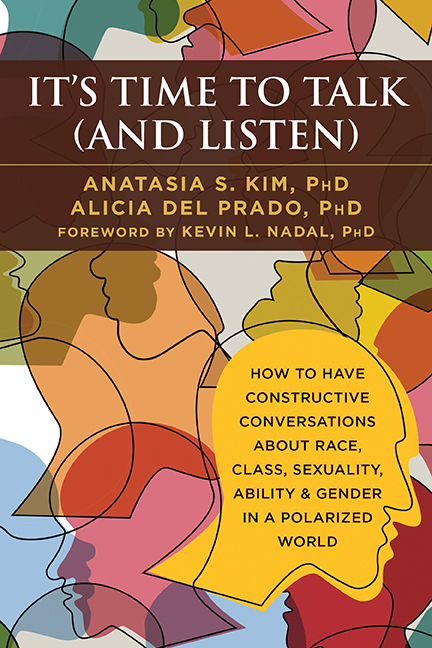Broaching microaggressions that occur in therapy tends to be challenging. As the therapist, you are faced with the decision to address the microaggression or let it go. This choice is difficult for many therapists who don’t want to hurt the therapeutic alliance, but also want to be transparent about their commitment to social justice.
When you are in that fork in the road deciding whether to speak up or stay silent, the following pointers can help you decide.
-
Do a cost-benefit analysis. What are the pros and cons of speaking up about the microaggression? How might addressing this issue be helpful to my client? What risks am I taking?
-
Assess your confidence. How confident am I that I can verbalize my confrontation in a compassionate way that is in the best interest of the client while also honoring my own integrity? Aim for at least an 80 percent confidence level.
If you decide to address the microaggression, the next question you are probably asking is, “Now what?”
-
First, take a deep breath. It’s important to take a moment to ground and self-regulate before speaking.
-
Identify a value that you can anchor yourself in, and that can be your compass for action. You may root yourself in the courage that you can do this, or the genuineness that by being authentic with your client, the clinical relationship will deepen.
-
Just prior to addressing the microaggression, give a “heads up” to your client about what’s coming next. For example, “I would like to address something that’s a bit sensitive, and I am confident we can handle talking about this together.”
No doubt these are not easy conversations. However, constructive conversations about microaggressions have the potential to deepen and strengthen the therapeutic alliance from which other clinical goals can be reached.
Book Titles: It’s Time to Talk (and Listen)
 Anatasia S. Kim, PhD, is a tenured associate professor at The Wright Institute in Berkeley, CA, where she also has a private practice specializing in treating adolescents and young adults. She is a National Ronald McNair Scholar and the recipient of numerous awards, including the American Psychological Association Minority Fellowship, Okura Mental Health Fellowship, and APAGS Guardian of Psychology Award. Kim has served as president of the Alameda County Psychological Association, chair of the California Psychological Association (CPA) Immigration Task Force, and diversity delegate of the CPA. She has presented and published in the areas of cultural competence and training, immigration, women of color in academia, and more.
Anatasia S. Kim, PhD, is a tenured associate professor at The Wright Institute in Berkeley, CA, where she also has a private practice specializing in treating adolescents and young adults. She is a National Ronald McNair Scholar and the recipient of numerous awards, including the American Psychological Association Minority Fellowship, Okura Mental Health Fellowship, and APAGS Guardian of Psychology Award. Kim has served as president of the Alameda County Psychological Association, chair of the California Psychological Association (CPA) Immigration Task Force, and diversity delegate of the CPA. She has presented and published in the areas of cultural competence and training, immigration, women of color in academia, and more.
Alicia del Prado, PhD, is a tenured associate professor at The Wright Institute in Berkeley, CA, and a licensed counseling psychologist with a private practice in Danville, CA. She has published numerous journal articles and chapters on cross-cultural psychology; personality; acculturation; and ethnic identity, including the first enculturation scale for Filipino Americans; and provides consultation and trainings on multicultural issues to companies and colleges. del Prado is chair and cofounder of the Asian American Psychology Association’s (AAPA) Division on Asian Americans with Multiple Heritages, and was awarded both the Alameda County Psychological Association’s Janet Hurwich Award and the AAPA Okura Community Leadership Award.

 Why Journaling Is Especially Helpful to Adult Children of Emotionally Immature Parents
Why Journaling Is Especially Helpful to Adult Children of Emotionally Immature Parents